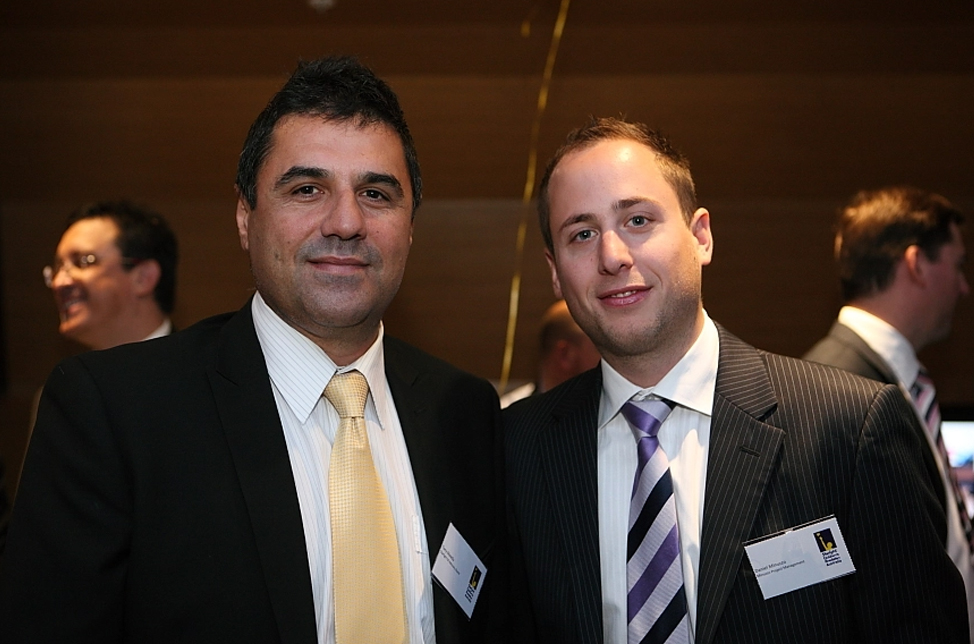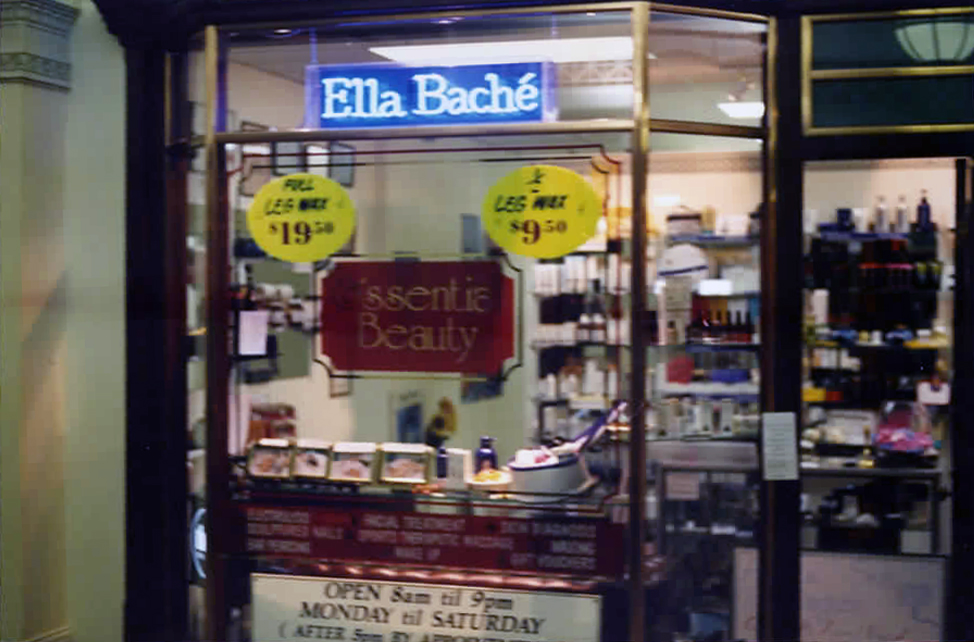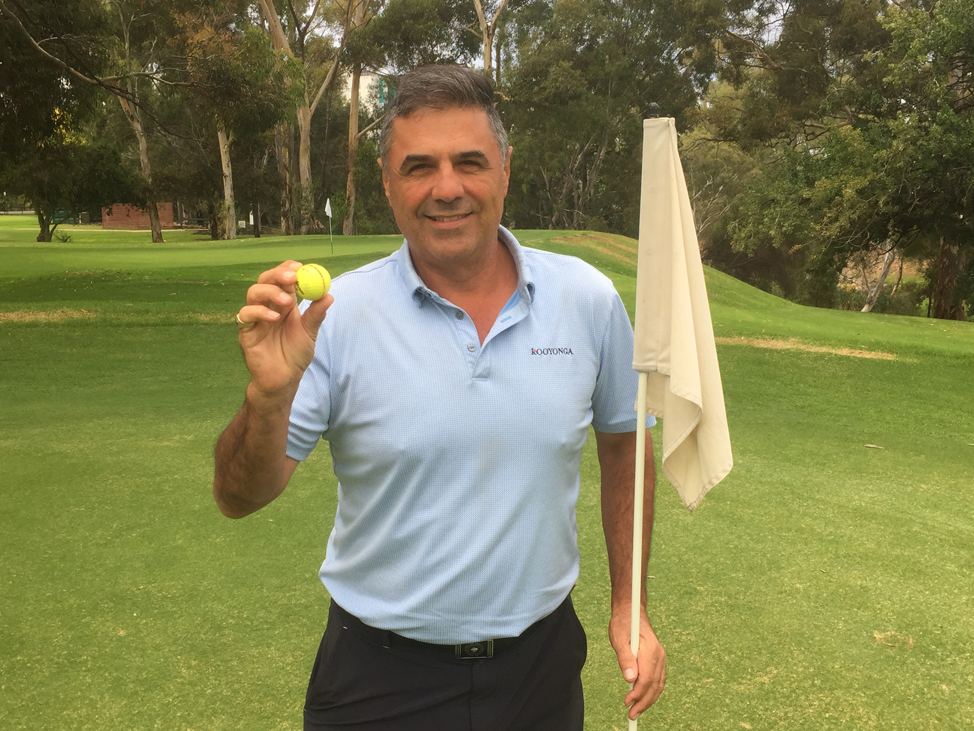30 April 2022

Tony Maiello
Founder and Advisory Chairperson of Essential Beauty
Board Member at Starlight Children’s Foundation
Bachelor of Education (Mathematics and Chemistry)
Can you please tell us a bit about your time at UniSA?
To be frank, I just didn’t want to go into the workforce full time so I went and studied. At the time, tertiary studies were free (and I still believe they should be, but that is another topic) and the uni was full of “professional students” jumping from one course to another. The culture at uni was awesome and I loved it since we were all on the same playing field trying to make our way in life. We all had little money but we had loads of character to make up for it. I worked part time to support myself and the plan was to work out a plan! All I knew was that where I was starting in life was not going to be where I was finishing.
The experience was great. However, by the fifth year the idea of having no money (still) became too much to bear so I was itching to get out and find full-time, consistent work that involved some level of professionalism as opposed to the work places I had been exposed to up to that point.
You went on to establish Essential Beauty, serve as the CEO and now you are Advisory Board Chairperson! Can you please talk us through your career journey that brought you here?
Uni----teaching---small business. I looked at the latter as my “apprenticeship” having market stalls and then a Snack Bar where I could work out the ins and outs of business by learning the hard way and in turn, assessing what went wrong and never repeating those mistakes. I finally realised that you can work hard with one set of hands and make money, but what if you could convince another set of hands to work for you equally? Then you could double your output. In addition, I worked out during my business apprenticeship that goods-based businesses can be easily replicated but service-based ones are harder to (enter Beauty Therapy).
With a sharp focus on Human Resources within a service-based industry I set off with my girlfriend (Mel – who later became my wife) to start Essential Beauty. She made the first one an absolute success and then I commercialised the whole process. 70 salons Australia wide later with 600+ employees and other challenges beckoned. The day-to-day is now in the hands of a CEO and I attend regular meetings focussing on the DNA of the business.

Can you please tell us a bit about your work on the Starlight advisory board?
When a child is sick it affects the whole family. Mum stays up all night trying to find a cure online (and sadly sometimes there simply isn’t one). Dad works too much and exhibits behaviours he may not ordinarily do so as he has a sick child. Siblings feel in some way it is their fault and they don’t get as much attention as the focus is on the sick child. This rollercoaster goes on for years. So, when we raise for these sick kids, we are doing it for the whole family.
Their stories are surreal – “One day we were at the playground and I noticed a lump on my child” they may say. After 9 months of not knowing what it is and many tests later, the child has a disease only 100 people in the world have.
These people did not have a choice. It came to them unwanted.
Starlight provides positive experiences to families who have endured years of pain. The studies which demonstrate what Starlight funding achieves is compelling. It is a noted and worthy cause.
What is the best part of your job?
The social science aspect. Working out why people do what they do and when. In turn, monetizing this process by adding value.
We all walk around with signs around our neck. Some may say” I need to get to class, I’m late” or “I’m hungry and need to rest” whilst others may be “I need to buy mum a gift voucher and get a haircut”- whatever. I love being able to interpret these signs through people’s behaviours and adding value thereafter. People will only part with their money if you are solving a problem for them and the best way to do that is to read the signs!

What do you think is the key to success?
Plan - Execute - Analyse - Learn. PEAL. When you fail you think you have lost something but you’re wrong. You have learnt what not to do again. Put it down to experience and analyse. What went wrong and what did you learn from it?
Life is a constant rotating wheel of Plan - Execute - Analyse - Learn and when executed on business processes, it can add tremendous value. Another way of saying it is, Continuous Improvement.
Also, don’t forget about one set of hands I mentioned earlier, I also subscribe to Collective Intelligence.
What were the most valuable lessons you learnt at UniSA?
I learnt a lot about people and processes and problem solving. I majored in Maths and Chemistry as part of a teaching degree. Maths and Chem are quantitative and absolute. However, teaching has a large dose of qualitative associated with it. The two methods combined are lethal in problem solving starting with what we know, what we don’t know and what to do in any situation. Apply these 3 simple questions to anything and you are on your way to an answer!
If you could have a conversation with your younger self – perhaps when you were at university or just starting out in the workplace – what would you say?
Believe in yourself more and stop wasting time on people who are not aligned with your understanding of success.
We would also just like to know a bit about the person you are – what do you like doing in your spare time? What are some of your passions outside of work?
I’m married to Mel. We have been together for 33 years. We have three kids – one at UniSA (soon to be all three (hopefully)). We also have two cats, Charlie and Lola.
I love playing golf and travelling and making a contribution even if it is just a kind word. Forever the optimist!




